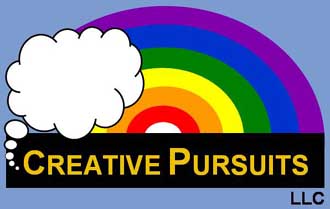Small business transitionsMaintaining the 'thrivability' of family-owned businesses through transitions of leadership and direction can be a challenging process - not only are there the usual business considerations, but also those related to preserving or nurtuting family relationships. As an Small Business Advisor for the Galliard Group I can help small businesses plan for their future by exploring the needs of the company and desires of the owners; generating, clarifying and articulating options; and managing the conversations needed to enable a successful process.Professional development and the bottom lineThe more effectively people work together, the greater their productivity and life satisfaction.Poor interpersonal skills are costly in a multitude of ways. Successful companies have figured this out and work to overcome it through specific training. High productivity, creativity, retention rates, loyalty and commitment rely on effective communication and good relationships. Popular professional development topics
Making real changes in how we operate involves more than just reading about it. Most of us need personal experience, practise, and lots of it, to master something new and to integrate it into our way of being. We offer a variety of interactive development programs aimed at making real, personal connections between new ideas and their practical implementation. Participants can see, hear and experience new more-effective ways of interacting with others, as well as testing them out, integrating them, and finding their own new voice. The elements contained in the programs listed below can be configured to suit your own specific requirements or preferences. Call to discuss your needs and how we might help you achieve the changes you seek. Superior Service SkillsTM Working in service industries involves more than just having technical expertise. Providers of superior service are people who combine their technical expertise with well-developed people skills to generate satisfied, loyal customers. Such skills include:
Click here for a more-detailed outline of the standard Superior Service SkillsTM professional development programs. (Click for top of page) Enhancing People Skills As most of us have developed our communication style and skills through trail and error, specific training involving new ideas, skills and opportunities for practise can help us understand how we might be more effective. Useful topics include:
Personal Power Having power is about having credibility and authority with others. Regardless of your actual position or title, it is how you are perceived by others that grants us power, which depends on the messages you send. To send the 'right' messages, you need to:
Leadership Leadership is about inspiring others to share and pursue your vision. The larger your target audience, the greater the diversity of values, opinions, attitudes, backgrounds, beliefs, styles, habits, ambitions and goals with which you will need to connect and to which you will want to respond effectively. To lead requires having visibility, credibility, and authority with those you are leading. A leader needs the ability to communicate, negotiate, influence and persuade others. They need to understand the motivation and behaviours of people. Leaders are 'made' rather than born, so you can become an excellent leader by learning the necessary attitudes and skills. Common topics covered in leadership skills training include:
Creating a healthy work/life balance There is a lot of talk these days about balancing the demands and rewards of work and home life. Many people picture achieving this balance by determining the perfect formula and implementing it. While this may work well for some, it may fail to address the inherent randomness of living systems. What this means is that if you have a rigid formula for achieving balance, it may fall apart with any small disruption. If you have a dynamic system, with variation and movement around your desired set point (much the same as a tightrope walker moving their feet and waving their arms), your balance will be more resilient in the face of challenges. You can explore this notion by learning how to:
|
| _________________________________________________________________________________ |
Home ¦
Contact Us ¦
Devel. programs ¦
Coaching: What?
Who?
Why? ¦
Presentations: Upcoming
and Past ¦
|
| _________________________________________________________________________________ |
Creative Pursuits LLC * P.O. Box 1084 * LaPorte * Colorado 80535
|


